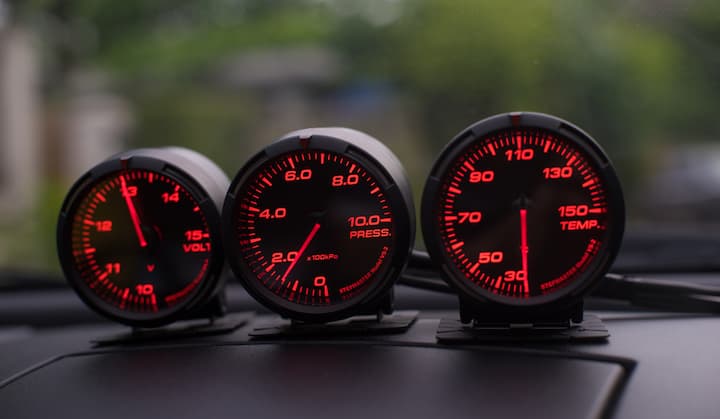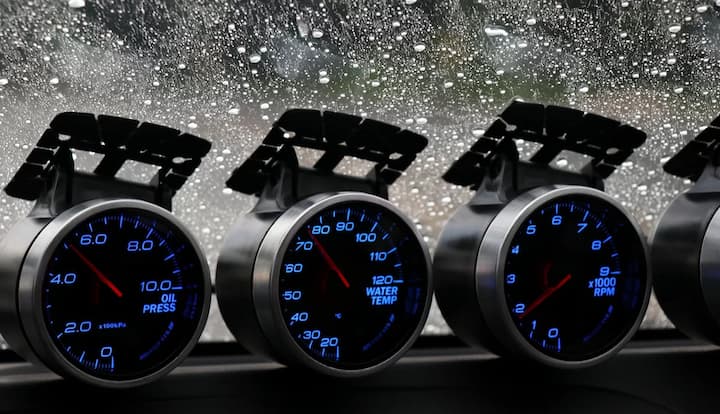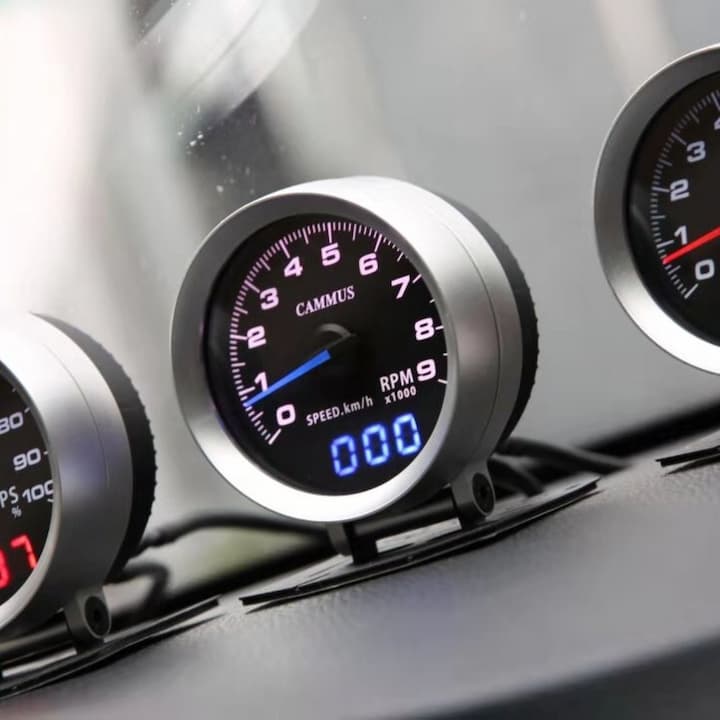Insightful Precision: Car Gauges and Timely Diagnostics
Owning a vehicle comes with a responsibility beyond the joys of driving; it’s about understanding and caring for your car’s well-being. Timely diagnosis of potential issues is crucial to keeping your vehicle in optimal condition. While there are various methods to diagnose problems, one of the most valuable tools in your automotive arsenal is the car gauge cluster. In this comprehensive guide, we will explore the significance of car gauges in diagnosing problems before they escalate, delve into the different types of car gauges, and shed light on their role in ensuring your vehicle’s health and longevity.
Diagnosing Problems in a Timely Manner

The health of your vehicle is a dynamic aspect that requires continuous monitoring and assessment. Diagnosing problems in a timely manner is not only essential for your safety but also for the longevity and performance of your car. Here are some methods commonly used to diagnose issues:
Visual Inspection: Regularly inspect your vehicle’s exterior and interior for visible signs of wear and tear, leaks, loose components, or unusual sounds.
Scheduled Maintenance: Adhere to your vehicle manufacturer’s recommended maintenance schedule, including oil changes, tire rotations, and fluid checks.
Onboard Diagnostics (OBD): Modern vehicles are equipped with OBD systems that monitor various parameters and trigger warning lights when an issue is detected. OBD scanners can read and interpret these codes for diagnosis.
Professional Inspection: Regularly consult a certified mechanic or technician for comprehensive inspections and assessments of your vehicle’s condition.
Car Gauges: Gauge car parts offer real-time data on your vehicle’s performance and condition, enabling you to detect issues promptly.
The Role of Car Gauges in Timely Diagnosis
Car gauges are instrumental in providing drivers with real-time information about their vehicle’s vital systems. They offer a visual representation of various parameters, allowing drivers to monitor performance, detect abnormalities, and take preventive measures before problems become serious. Car gauges serve as a window into your vehicle’s health, offering insights into the following key areas:
Engine Health: Gauges like the temperature gauge and oil pressure gauge provide immediate feedback on the engine’s temperature and oil pressure. Sudden fluctuations or anomalies can indicate potential engine problems.
Fuel Efficiency: Monitoring the fuel gauge and instant fuel economy gauge helps drivers gauge fuel levels and the efficiency of their driving habits. A sudden drop in fuel efficiency might indicate issues with the fuel system or engine.
Battery Voltage: The battery voltage gauge displays the electrical system’s voltage. A declining voltage reading may signal a failing alternator or battery, which can lead to starting problems.
Speed and RPM: The speedometer and tachometer gauges provide information on vehicle speed and engine revolutions per minute (RPM). Unusual fluctuations can point to transmission or engine issues.
Fluid Levels: Gauges for monitoring coolant, transmission fluid, and oil levels help drivers maintain fluid levels within optimal ranges, preventing overheating or mechanical damage.
Different Types of Car Gauges

Car gauges come in various types, each designed to provide specific information about your vehicle. Understanding these gauges and their functions is essential for effective diagnosis and maintenance. Here are the primary types of car gauges:
Analog Gauges: These traditional gauges use a needle or dial to display information on a round or rectangular dial. Examples include the speedometer, tachometer, and fuel gauge.
Digital Gauges: Digital gauges use electronic displays to present information in numerical or graphical format. They are common in modern vehicles and provide precise readings. Examples include the digital speedometer and digital fuel efficiency gauge.
Pressure Gauges: Pressure gauges measure pressure in various vehicle systems, such as oil pressure, fuel pressure, and tire pressure. They display readings in pounds per square inch (PSI) or bar.
Temperature Gauges: Temperature gauges monitor temperatures in critical areas like the engine coolant temperature gauge and oil temperature gauge.
Level Gauges: Level gauges measure the level of fluids in various systems, including the fuel gauge, coolant level gauge, and transmission fluid level gauge.
Voltmeter: The voltmeter gauge displays the voltage output of the vehicle’s electrical system. It helps detect issues with the battery or alternator.
Ampere Gauge (Ammeter): The ammeter gauge measures the flow of electrical current in the vehicle’s charging system. It helps monitor the health of the charging system.
Boost Gauge: Common in turbocharged or supercharged vehicles, the boost gauge measures the pressure generated by the forced induction system.
Choosing the Ideal Car Gauges
Selecting the right car gauges for your vehicle requires careful consideration of your needs and preferences. Here are some factors to keep in mind:
Vehicle Type: Consider your vehicle type and purpose. Some gauges, like boost gauges, are specific to certain types of vehicles.
Relevance: Choose gauges that provide information relevant to your vehicle’s systems and performance goals.
Compatibility: Ensure the gauges you select are compatible with your vehicle’s make and model. Some vehicles come with built-in gauges that can be upgraded.
Accuracy: Opt for gauges that provide accurate readings and are calibrated to your vehicle’s specifications.
Display Type: Decide between analog and digital gauges based on your preferences for readability and aesthetics.
Installation: Consider the ease of installation and whether you have the skills and tools required for the job. Professional installation may be necessary for complex gauges.
Budget: Set a budget that aligns with your needs. Gauges come in various price ranges, so you can find options that suit your requirements.
Conclusion

Car gauges play a crucial role in monitoring and diagnosing potential issues in your vehicle before they escalate into costly problems. They offer real-time data on critical parameters, including engine health, fuel efficiency, battery voltage, speed, and more. By understanding the different types of car gauges and their functions, you can equip your vehicle with the ideal gauges to keep it in optimal condition, ensure your safety, and extend its lifespan. Car gauges are not just instruments; they are your vehicle’s watchful eyes, providing you with valuable insights into its health and performance.






![AFX Sauber F1 C44 Stake No24 Slot Car [22092]](https://www.availableonline.com.au/wp-content/uploads/2025/06/6ccd9e30-c6fa-4910-9081-5fcc3ba80b04__60843-520x245.jpg)

